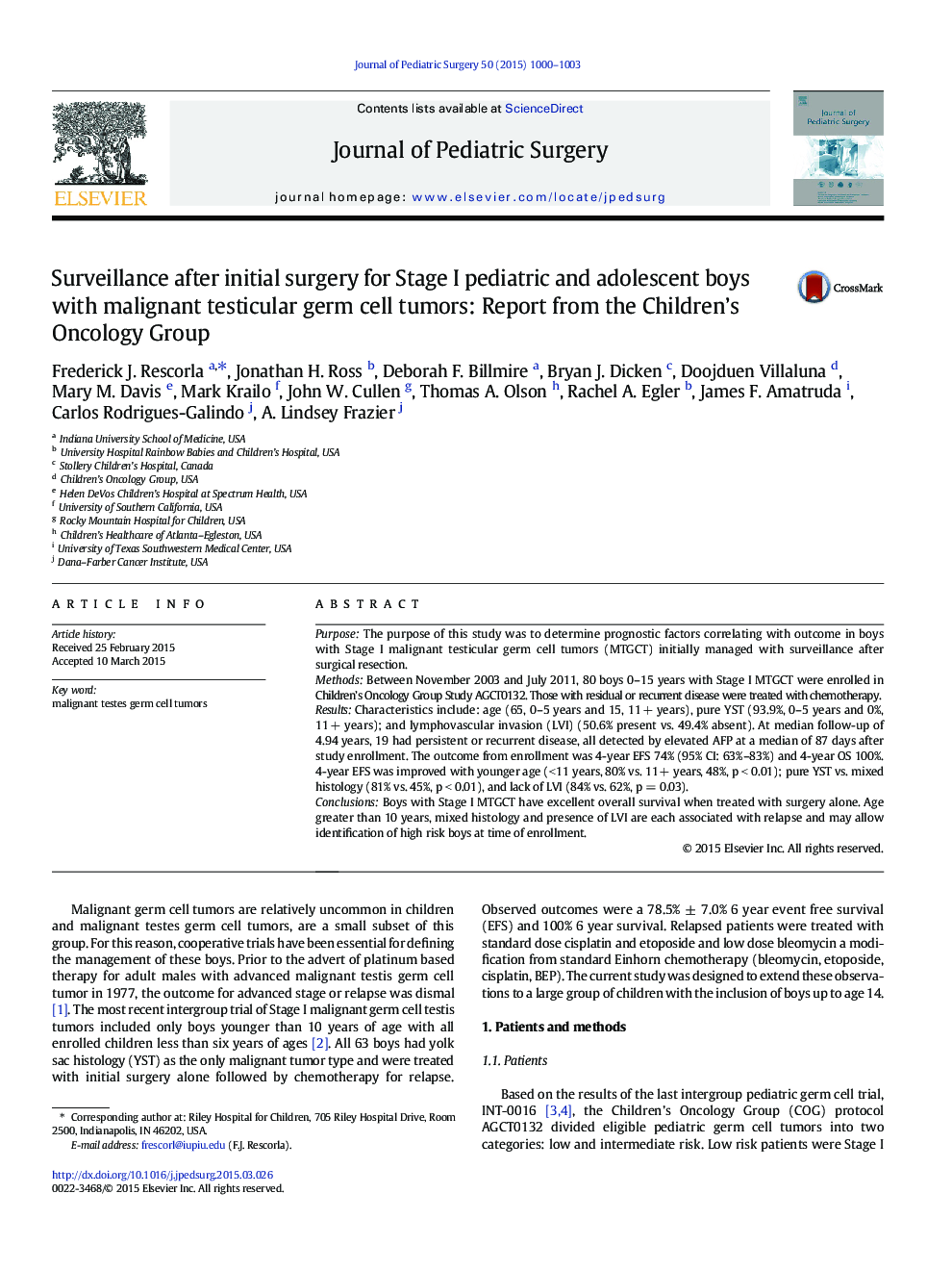| Article ID | Journal | Published Year | Pages | File Type |
|---|---|---|---|---|
| 4155054 | Journal of Pediatric Surgery | 2015 | 4 Pages |
PurposeThe purpose of this study was to determine prognostic factors correlating with outcome in boys with Stage I malignant testicular germ cell tumors (MTGCT) initially managed with surveillance after surgical resection.MethodsBetween November 2003 and July 2011, 80 boys 0–15 years with Stage I MTGCT were enrolled in Children’s Oncology Group Study AGCT0132. Those with residual or recurrent disease were treated with chemotherapy.ResultsCharacteristics include: age (65, 0–5 years and 15, 11 + years), pure YST (93.9%, 0–5 years and 0%, 11 + years); and lymphovascular invasion (LVI) (50.6% present vs. 49.4% absent). At median follow-up of 4.94 years, 19 had persistent or recurrent disease, all detected by elevated AFP at a median of 87 days after study enrollment. The outcome from enrollment was 4-year EFS 74% (95% CI: 63%–83%) and 4-year OS 100%. 4-year EFS was improved with younger age (< 11 years, 80% vs. 11 + years, 48%, p < 0.01); pure YST vs. mixed histology (81% vs. 45%, p < 0.01), and lack of LVI (84% vs. 62%, p = 0.03).ConclusionsBoys with Stage I MTGCT have excellent overall survival when treated with surgery alone. Age greater than 10 years, mixed histology and presence of LVI are each associated with relapse and may allow identification of high risk boys at time of enrollment.
